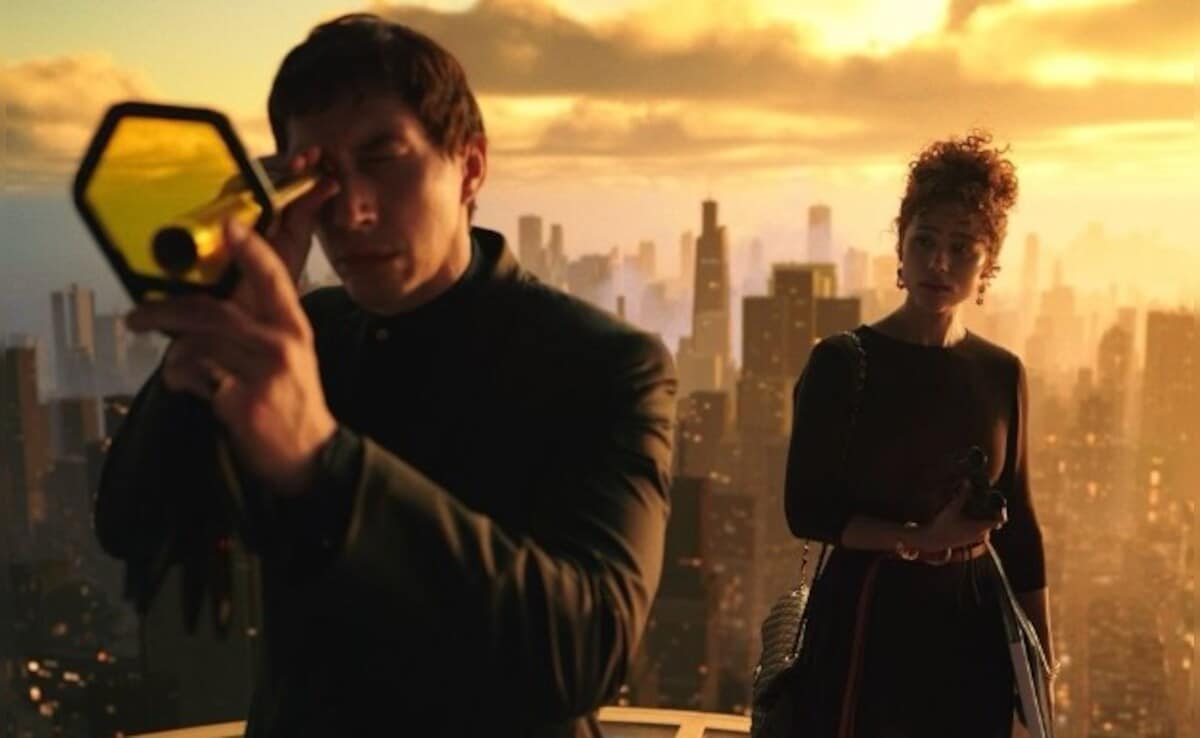Quietly self-indulgent and relentlessly inventive

New Delhi:
Quietly self-indulgent and delusional and endlessly inventive, MegalopolisFrancis Ford Coppola’s intended million swan song may prove to be as much of a $120 million folly as the 85-year-old director’s artistic leap of faith. “When you leap into the unknown, you prove you’re free,” says a character in the film. If nothing else, Megalopolis fearless
It’s the kind of big-swing filmmaking that only a master who has done enough in a long and eventful career marked by some of the best works in American cinema can attempt without worrying about proving anything to the industry or the world at large. .
Like Caesar Catiline (Adam Driver), the film’s main character, who bears a Roman name like everyone else around him, Coppola is haunted by the past, haunted by the present and tempted by the future.
The protagonist, a visionary architect who plans to stop time and change the course of history, may not succeed to the extent of his ambitions. The film might as well be doomed to failure considering that it doesn’t let anything stop itself. But as you see Megalopolis Reveal, often in an unpleasant manner, that you realize it cannot be anything other than what it turns out to be.
Megalopolis Meant to be mega-messy. In its messiness lies its message. A sprawling and over-the-top production that’s at once retrograde and futuristic, Coppola wants us all to see that all is not well with American democracy — and with cinema. “Mankind’s worst enemy is civilization,” Caesar says at one point.
At another juncture, he is asked if utopia is a place where every problem can be solved, he replies that it is a place where questions can be asked. MegalopolisThe way it spreads and the random structure it stands on, offers no solution. Coppola lacks the one thing that underlines the initiative of the filmmaker and his protagonist – hope. Megalopolis Asks lots of questions, some to the point, others random.
Coppola, whose name appears above the title, added “A Fable” below with the express purpose of creating space and opportunity for flights of fancy that take the audience backwards and forwards with revelations of history, philosophy and literature. Words from Ovid, Sappho, Petrarch and Rousseau are scattered throughout the film.
Will we (America) succumb to the insatiable hunger for power of a few like the Roman Empire? That is the question Megalopolis opens with Caesar is about to step off the outer edge of a skyscraper when he orders a halt. It obeys its orders. And then the film goes in all directions to capture the chaos of the world where Caesar is trying to make something happen for the common good.
Coppola clearly still retains his faith in both America and its cinema, but has clearly been driven to a point of despair by the rapid, seemingly irreversible contraction of foresight, sanity and common sense in public life and all that goes with it.
Greed-fueled banking and myopic urban planning left people struggling with a level of debt and depression that only made it easier for the rich to get richer.
In MegalopolisNew York is the New Rome, an urban site of an ideological battle between Caesar Catiline, who won a Nobel Prize for creating a revolutionary building material called the Megalon, and the city’s crusty, change-resistant mayor, Frank Cicero (Giancarlo Esposito).
The talented architect plans to give the city a dramatic makeover and hand it over to the people, but the mayor plans to build a casino to raise revenue due to the sorry state of New Rome’s economy. Cicero and his friends, including a self-serving businessman played by Dustin Hoffman, want to stick to steel and concrete while Caesar has other ideas.
The enmity between Caesar and Cicero goes back to when the latter was in charge of investigating the murder of Caesar’s wife. Caesar himself was the prime suspect but the charge could not be established as the body of the accused disappeared into thin air.
Caesar has no shortage of women. Television reporter Wo Platinum (Aubrey Plaza), with whom he has a secret affair, and the mayor’s free-spirited daughter Julia (Nathalie Emmanuel), who develops an affair with him, aren’t exactly invisible and powerless, the women there. Megalopolis Don’t make as strong an impression as they should, given the range of ambitious activities they engage in. What they do is not detached from the honor of men.
Bah longs for power and money, so she plots to marry Hamilton Crassus III (Jon Voight), the richest man in New Rome and Caesar’s uncle. The old man has his sights set on the shore, as well as his foppish son Claudio (Shia LeBeouf), who responds to his advances.
Julia, on the other hand, defies her mayor-father and begins not only Caesar’s vision but also a romance with him. He emerges as the architect’s most trusted assistant when he bails him out of a tight spot involving a sex video doctored by his cousin Claudio.
Shaken and ashamed by the scandal, Caesar laments: “I have lost my power. I can no longer control time.” But he continues to allow time to guide him forward. In the megalopolis-like sprawl of the paradigm, cries of despair or demands of optimism are not delivered with unbridled confidence.
The film, which takes place in an unstable world, itself reflects, within its whimsical folds, much of that instability. Megalopolis Goes out on a limb and can be seen tilting at windmills, but the visually stunning, if often chaotic, canvas it rattles can actually stop time and develop a cult following as an ambitious and perhaps commercially unprofitable effort from a filmmaker. Can cause that which has nothing. to lose



